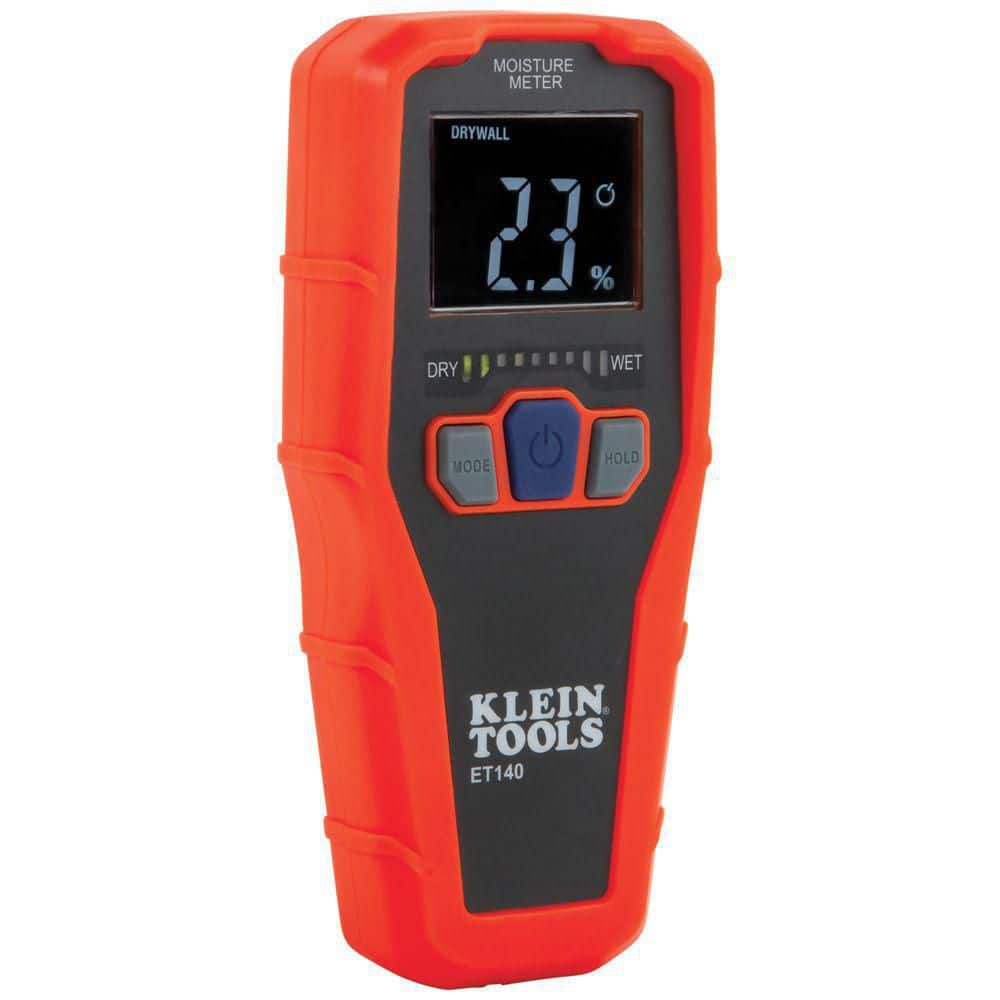Why Every Home Owner Needs a Moisture Meter: Key Advantages and Functions
Why Every Home Owner Needs a Moisture Meter: Key Advantages and Functions
Blog Article
The Ultimate Overview to Wetness Meters: A Comprehensive Summary and Exactly How They Can Save You Money
Dampness meters offer as vital devices in spotting and keeping track of moisture content in materials, aiding in preventing costly problems and making sure the high quality of items. Comprehending the nuances of different kinds of wetness meters, their applications, and the possible cost-saving benefits they provide can be a game-changer for specialists and services alike.
Kinds Of Moisture Meters
One typical type is the pin-type dampness meter, which measures the electric resistance in between 2 pins inserted into a product. Pinless dampness meters, on the other hand, usage electro-magnetic sensing unit plates to check a bigger location without creating damages to the product's surface area.

Infrared wetness meters gauge the thermal properties of a product to establish its wetness web content non-invasively, making them helpful for applications where pin or pinless meters might not be suitable. Comprehending the various types of wetness meters readily available can help markets choose the most proper device for their particular wetness dimension needs.

Benefits of Utilizing Dampness Meters
Wetness meters supply vital benefits in properly monitoring and analyzing moisture levels in diverse materials and settings. One of the key advantages of utilizing moisture meters is the prevention of possible damages triggered by excess wetness.
Moreover, making use of wetness meters can bring about boosted energy effectiveness. By determining areas with high moisture levels, such as leaks or inadequate insulation, modifications can be made to boost energy preservation and lower energy costs. In farming settings, moisture meters play an essential duty in maximizing crop returns by allowing farmers to keep track of soil dampness levels and make educated watering decisions. Generally, the benefits of making use of moisture meters extend across various markets, providing cost-efficient options and advertising much better quality control techniques.
How to Select the Right Dampness Meter
Selecting the proper moisture meter includes taking into consideration key aspects such as product compatibility, measurement variety, and calibration precision. When choosing a wetness meter, it's important to guarantee that the meter is ideal for the specific material you will certainly be testing. Different products have differing electric residential or commercial properties that can impact dampness analyses, so selecting a meter designed for your material is vital for exact outcomes. Additionally, consider the measurement variety of the dampness meter. Make certain that the meter can discover dampness degrees within the range required for your applications. Calibration precision is one more important factor to keep in mind. Select a moisture meter with trustworthy calibration to make certain specific and regular readings. Some meters might call for routine calibration modifications, so comprehending the calibration procedure is very important. By carefully examining these elements, you can select a moisture meter that fulfills your needs and gives exact dampness measurements for your projects.
Correct Methods for Moisture Meter Use

Expense Cost Savings With Moisture Meter Applications
Exactly how can the calculated use of dampness meters cause substantial expense financial savings throughout numerous markets? Wetness meters play a critical duty in expense savings by avoiding potential damages and making certain quality assurance in different industries. In the agriculture sector, wetness meters aid in identifying the optimal time for harvesting plants, protecting against excess or over-drying wetness that can impact the end product's high quality. This accurate monitoring aids farmers prevent unnecessary losses and optimize their yield.
Similarly, in building, moisture meters assist prevent expensive damages by identifying wetness levels in structure products, such as wood or concrete, which can bring about structural issues if not dealt with promptly. By determining trouble areas early on, contractors can take corrective procedures to avoid substantial repairs or substitutes, eventually saving time and money.
In addition, in the food handling industry, moisture meters are essential for keeping track of product quality and making certain compliance with safety laws. By More Bonuses accurately determining wetness web content in food products, producers can stop perishing, keep quality, and reduce waste, leading to considerable expense financial savings. On the whole, the critical application of moisture meters is a valuable investment that can result in considerable expense reductions and enhanced effectiveness throughout different sectors.
Verdict
To conclude, wetness meters are useful devices for gauging and identifying dampness degrees in numerous products. By making use of the ideal dampness meter and adhering to appropriate methods, individuals can efficiently avoid costly problems triggered by excess dampness. Purchasing a high quality moisture meter can lead to substantial price savings in the future by identifying potential concerns beforehand and allowing timely remediation. Inevitably, wetness meters are vital instruments for maintaining the integrity and long life of products and frameworks.
Moisture meters serve as vital tools in finding and keeping track of moisture web content in materials, assisting in preventing expensive damages and making certain the high quality of products. Infrared wetness meters measure the thermal buildings of a material to establish its wetness content non-invasively, making them beneficial for applications where pin or pinless meters may not be ideal.Dampness meters provide very useful advantages in precisely keeping an eye on and assessing dampness degrees in diverse materials and settings. In farming settings, dampness meters play a critical function in maximizing crop returns by enabling farmers to monitor soil wetness levels and make notified watering choices.In verdict, dampness meters are valuable tools for gauging and identifying moisture levels in various materials.
Report this page